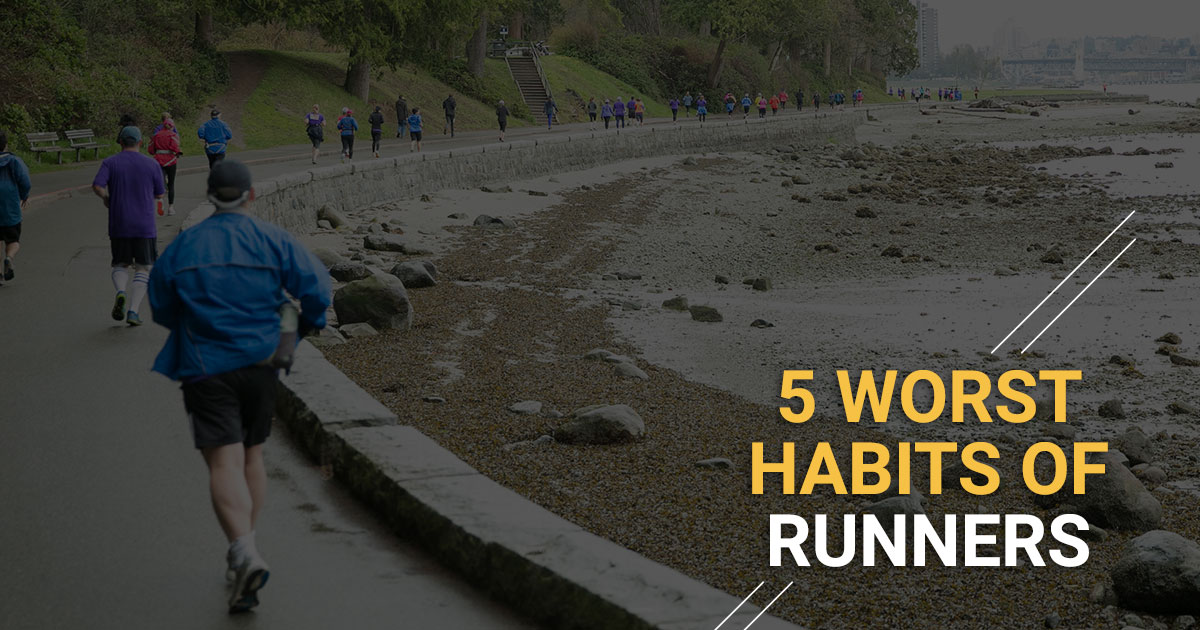
Runners are guilty for developing poor habits that they believe will enhance their training, but can actually negatively affect training and increase their risk of injury. Here are some of the ones we see most often, and what you can do to prevent them:
- Running too much. More isn’t always better. Runners make the mistake of ramping up their mileage too quickly before they allow their bodies to adapt to the training. Overuse injuries are caused primarily from running more than the body can withstand. Abiding by the “10% Rule” is the safest way to increase mileage; if you’re running 30km per week and want to do more, do 33km the following week and so on.
- Hip/core work isn’t a part of the training program. Another way of preventing injury is by incorporating a simple core and hip strengthening routine. When injuries occur it’s typically from muscle weaknesses and imbalances that cause runners to compensate. By adding hip and core exercises into your weekly routine, it helps to stabilize the leg with every stride, and helps to maintain good posture while running.
- Running on the same route/surfaces. Changing the variability of your running routes and surfaces can help to keep injuries at bay. If you always run the same flat course on the road, it might be time to hit the trails. Mixing up the surface you run on can help to strengthen stabilizer muscles in your legs and feet, and avoid overloading any other muscles. Using softer surfaces like trails and rubberized tracks will reduce the impact on running on your body which is best when you’re tired, or needing a recovery day.
- Skipping rest days. Overtraining can lead to a multitude of problems from injury, increased risk of sickness, and loss of motivation. Rest days are a crucial part of any training program as it allows the body to absorb all the work it’s done throughout the week. If that day is skipped your body doesn’t have the time to rest and will continually breakdown until the point of injury. Listening to your body is key to realize. If it’s feeling unusually fatigued or if there’s any nagging pain, it’s probably time to take a day off.
- Not wearing the best shoes for your feet. Shoes are the most important tool any runner has. If they are worn out, or have an improper fit, that can increase the risk of injury. Shoes are typically good for about 300-500 miles, but after that the cushioning and stability starts to wear out. If you’re unsure of what shoes are the best for you, head to the nearest run specialty store and have the experts help you figure out what you should be wearing. They’ll provide a wealth of knowledge.







